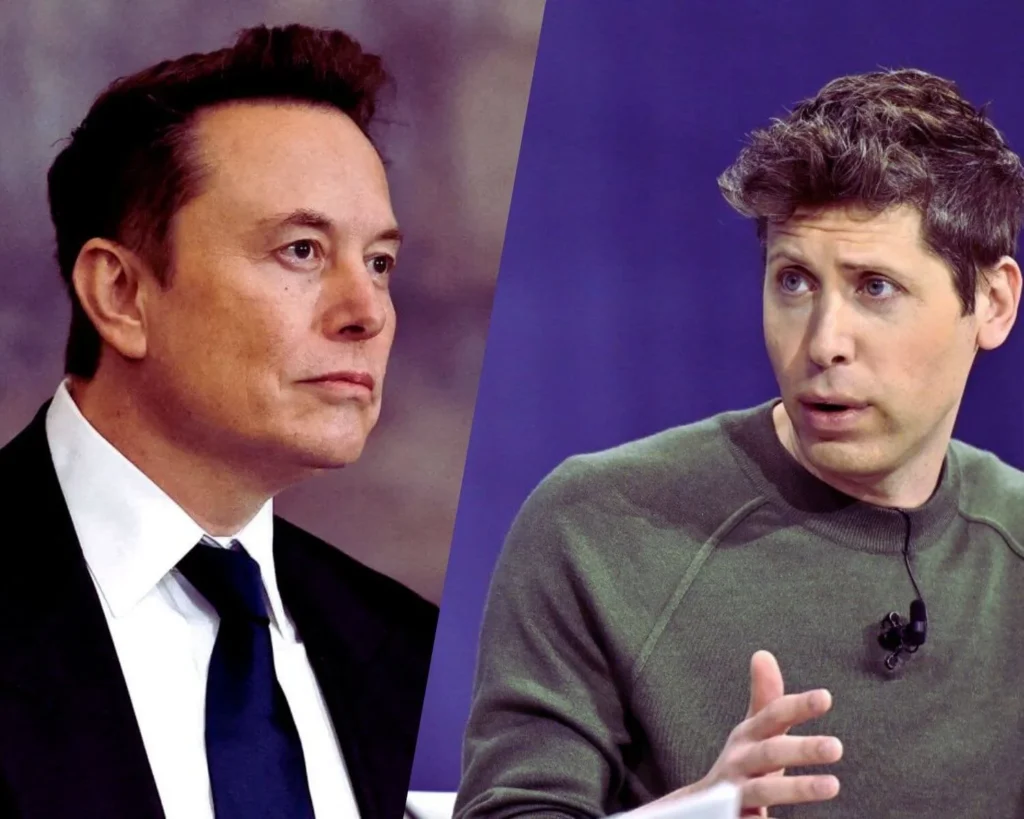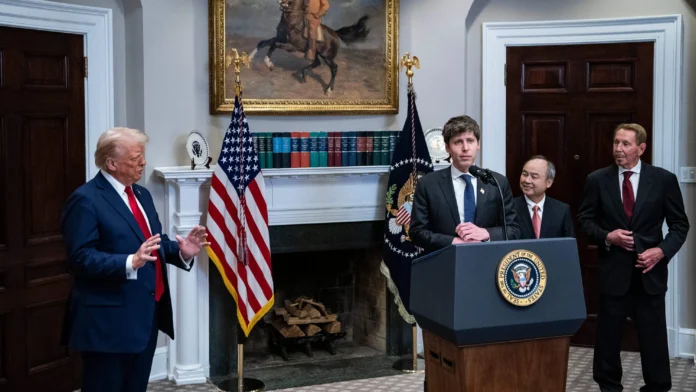Introduction
Sam Altman’s Strategy has positioned OpenAI at the forefront of U.S. AI policy, securing favor from former President Donald Trump despite fierce competition from industry titans like Elon Musk. Once a staunch Democratic donor and vocal Trump critic, Altman defied expectations by securing a $100 billion AI deal under Trump’s administration, known as Project Stargate. This bold maneuver not only advanced OpenAI’s ambitions but also showcased Altman’s adaptability in navigating high-stakes political landscapes.
Altman’s ability to align AI innovation with government priorities, forge strategic alliances, and influence key decision-makers highlights the evolving intersection of technology and politics. His calculated efforts to shift public perception, shape regulatory policies, and secure vital partnerships have reshaped the relationship between Silicon Valley and Washington. As AI continues to redefine the global economy, his actions raise crucial questions about data privacy, international competition, and the regulatory frameworks that will shape AI’s role in the future.
How Sam Altman Won Trump’s Support
Altman’s relationship-building strategy with influential Trump allies played a key role in his success. He leveraged his connections with Doug Burgum (North Dakota governor and Trump’s interior secretary nominee), Larry Ellison (Oracle co-founder), and Masayoshi Son (SoftBank founder) to align OpenAI’s interests with Trump’s economic vision. By appealing to Trump’s priorities—job creation, infrastructure, and AI supremacy over China—Altman positioned OpenAI as an indispensable partner to the administration. His strategy involved direct lobbying efforts, leveraging AI’s potential as a national security asset, and demonstrating how OpenAI’s projects could generate tens of thousands of American jobs.
The Phone Call That Changed Everything
Just days before Trump’s inauguration, Altman personally pitched AI’s future to Trump in a 25-minute call. He promised that artificial general intelligence (AGI) could be achieved within Trump’s presidency, positioning the U.S. as the global leader. He further revealed OpenAI’s partnership with Oracle and SoftBank to build data centers nationwide, emphasizing the massive economic benefits. Trump, reportedly intrigued by the economic potential, asked detailed questions about AI’s impact on manufacturing, national security, and job automation, signaling his interest in placing AI at the forefront of his economic agenda.
This conversation not only won Trump’s attention but also paved the way for further discussions that led to formal agreements, regulatory incentives, and policy endorsements. By the time Trump officially took office, Altman had successfully framed AI as an economic miracle that aligned with the former president’s broader vision for American industrial resurgence. The significance of this moment cannot be overstated, as it laid the foundation for OpenAI’s long-term governmental partnerships and influence over national AI strategy.
Behind-the-Scenes Lobbying
Altman’s strategy extended beyond direct conversations with Trump. He orchestrated a broader campaign targeting Trump’s closest advisors, including Jared Kushner and Peter Thiel, who both wielded significant influence over the administration’s tech policies. By fostering relationships with influential power players and offering detailed white papers outlining AI’s role in military applications, economic expansion, and cybersecurity, Altman ensured that OpenAI became a key player in the administration’s vision for technological dominance.
Additionally, he arranged private AI briefings with Pentagon officials and defense contractors, showcasing OpenAI’s advancements in autonomous warfare, cyber defense, and intelligence augmentation. This aggressive push solidified OpenAI’s reputation as an essential government partner, further marginalizing Musk’s influence in these circles. The result was a shift in government AI investments, with OpenAI emerging as the de facto leader in federally backed AI research and infrastructure.
Outflanking Elon Musk: A High-Stakes Rivalry

While Musk had direct ties to Trump, having donated $250 million to his campaign, Altman’s strategic play ultimately won over the administration. Musk and Altman’s feud dates back to OpenAI’s founding, where Musk attempted to take control. Their rivalry intensified when Musk launched xAI, a competing AI company. Despite Musk’s influence, Trump embraced Altman’s vision, making OpenAI a central player in U.S. AI policy. Altman’s ability to shift political sentiment in his favor highlights the power of strategic alliances and calculated risk-taking.
Project Stargate: The $100 Billion AI Deal
Altman’s $100 billion initiative with SoftBank and Oracle, later dubbed Project Stargate, became the largest AI infrastructure project in history. By timing the announcement immediately after Trump’s inauguration, Altman ensured that Trump could take credit for the investment, further solidifying their alliance. The scale of this project meant a nationwide overhaul of AI-driven data centers, thousands of new jobs, and a deepened partnership between the private sector and federal government.
Key Backers of Stargate:
- SoftBank: Financial powerhouse backing AI expansion, with a focus on international AI collaboration.
- Oracle: Providing the cloud infrastructure and ensuring AI’s deep integration into government and enterprise systems.
- Trump Administration: Public endorsement, regulatory support, and federal contracts aimed at ensuring AI growth within U.S. borders.
Political & Economic Implications
Project Stargate positioned AI as a cornerstone of national economic strategy, drawing comparisons to past industrial booms like the rise of the internet and the aerospace industry. By framing AI development as a strategic necessity, Altman was able to attract bipartisan support, even among some skeptical lawmakers who traditionally opposed tech monopolies. The scale of the project also sparked renewed international AI competition, with nations like China and the EU scrambling to respond. The geopolitical implications of this shift continue to unfold, as the U.S. positions itself as the undisputed leader in AI dominance.
The Turning Point: Trump’s Endorsement
On Trump’s second day in office, Altman stood behind the president in the Roosevelt Room as he praised Project Stargate, calling it a “big, beautiful deal for American jobs.” Altman capitalized on Trump’s love for grand projects, stating publicly, “We wouldn’t be able to do this without you, Mr. President.” This public endorsement marked a crucial turning point, solidifying OpenAI’s role in future policy discussions and ensuring federal support for its initiatives. This moment also signaled to investors and global markets that AI’s future would be heavily intertwined with U.S. government policies.
Conclusion: Altman’s Political Gamble Pays Off
Sam Altman’s ability to navigate shifting political landscapes solidified OpenAI’s dominance in AI infrastructure. By securing Trump’s support, aligning AI with economic nationalism, and outmaneuvering Elon Musk, he ensured OpenAI’s place at the forefront of AI policy. His diplomatic agility, strategic deal-making, and ability to shift political narratives demonstrated the growing intersection between tech leadership and government policy. As OpenAI’s influence expands, Altman’s actions will likely continue shaping AI governance for decades to come, setting the stage for future tech giants to follow in his footsteps.


